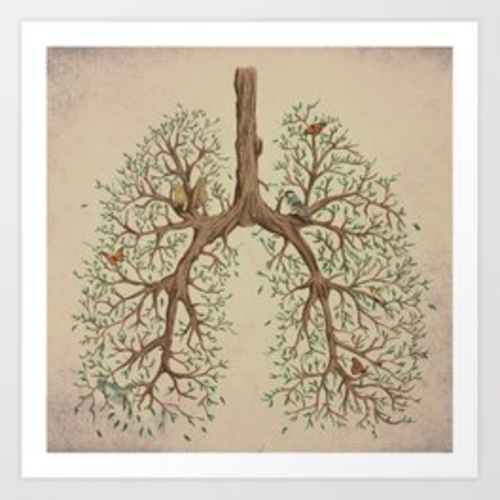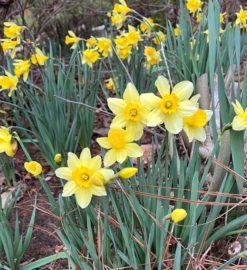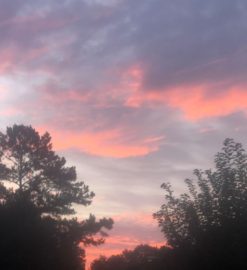The Breath We Breathe

I keep a small card, which I received from the Center for Action and Contemplation (CAC) some time back, on my desk. On it is a guided meditation called “I Love You” from Dr. James Finley, one of CAC’s core faculty. It reads:
“When you sit in meditation, quietly focus your attention on your breathing. Each time you realize you have drifted off into thoughts, memories or sensations, simply return to your breathing.
As you inhale, hear God’s silent words, “I love you.”
As you exhale, breathe out a silent “I love you.”
As you inhale, be aware of the air as God flowing into you.
As you exhale, allow your ”I love you”to be your very being, flowing back into the depths of God.”
When I practice this, I imagine my exhaled breath going back not just to God (or whatever name you give to the source of all life) but also out into the world, just as God loves the whole world. To love God, I believe, we have to be able to love the world.
Over the years I have also come to think about ruach when I practice and recall this meditation. Ruach is the Hebrew word which can be translated as breath or spirit or wind.
When we breathe in the love of God, we breathe in spirit. Even if we aren’t consciously aware of God’s “I love you.” when we breathe, God’s everywhereness means that my very breath – whenever and wherever I am – is ruach. It is not reserved just for fleeting mountaintop, Pentecost, tongues of fire moments. Ruach is present in every moment and in every breath. As I live and breathe, spirit is in me. It animates me. It is exchanged with the world through me.
In recent months though, this practice and the notion of ruach have raised questions that I have had to consider. The words “I can’t breathe!” have become part of our vernacular. Whether from George Floyd, and countless other people of color, or from the lips of people struggling to breathe under the weight of the oppressive Covid-19, our breath, or lack of it, has become something that I am even more aware of.
Before our eyes, people are literally struggling to breathe. They are unable to inhale the air their bodies need to survive. And we’ve all had to wonder at some point, whether we have been diagnosed with Covid-19 or we’ve been exposed to someone with it, or we’re sick with Covid-19 symptoms, if when we exhale our breath out into the world we could be sharing germs that could make others sick. Maybe even sick enough to die. We’ve had to consider that our breath might not be life-giving for others. In fact, it could be quite the opposite.
So where is God, where is ruach in our breathing in the midst of a time when too many are crying, “I can’t breathe!”?
Some might say God has left, that spirit has abandoned us.
Some might say that a loving God wouldn’t allow such evil to befall us and be led to declare there is no God.
Some might even say that when the breath is stolen too soon it is because we have done something to incur God’s wrath.
I don’t believe any of those answers to be true.
In God’s everywhereness, God is still in the breath. Ruach is still omnipresent as we inhale and exhale. God’s love for us still fills every breath we take in, even if it’s harder to take it in and to push out. And though many we know and loved have died from Covid-19 and from unjust violence because of the color of their skin, we – you and I – can still breathe the love of God out into the world with our breath. We can do it even when we have to mask and quarantine and isolate to protect people from germs we have or might have. Masks serve as a defense to the transmission of germs, but they cannot filter or contain ruach. Quarantine and isolation can’t contain God’s love and ruach within four walls.
God and ruach are in the nurse, the doctor and the respiratory therapist at the bedside of a scared Covid-19 patient on a ventilator.
God and ruach are in the conversations that are happening to understand what racism is, why it exists, and what we can do to remove its ugly stain on our world.
God and ruach are in the teacher and the students who show up in classrooms, uncertain of the level of risk they are exposed to by their collective presence, but doing their best to figure out how to safely live our lives in our current reality.
God and ruach are in the Zoom and FaceTime conversations we have with one another as much as they are when we gather together in person.
God and ruach are in the family and friends who remain to carry on the legacy of a loved one who died from Covid-19 or from racial injustice.
God and ruach are in those who work around the clock to develop and manufacture Covid-19 vaccines, those who give vaccines, those who receive vaccines, as well as those who don’t or can’t.
God and ruach are in elected officials, activists and citizens who debate how to define just voting laws in this country as well as in those who votes may be harder to cast because of laws that effectively discriminate.
Ruach, the spirit and breath of life itself, is everywhere. It has been from the beginning of all things and has stood the test of time and all that has been thrown at it. Its light in dark places cannot be extinguished. Though the breath of too many of our sisters and brothers across the globe over the last eighteen months has been silenced too soon, their ruach carries on in and through us.
So those of us who have breath still to breathe have a question to answer? As we breathe in ruach, God’s ‘I love you,” what does our breath back to God and the world around us look like?
The answer has everything to do with the air quality we leave for generations to come.
_______________________________________________________
On Further Thought



